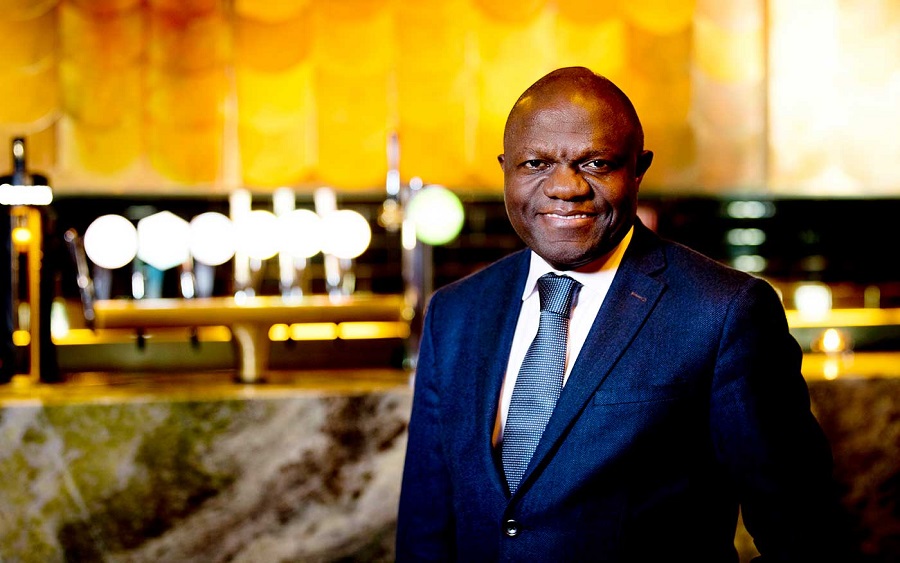Guinness Nigeria Plc has started its 2021 financial year with a loss, just like the company did in 2020. However, this time, the value of the loss adds up to N841 million for the opening quarter. In 2020, it was N370 million, which set the tone for what eventually degenerated into a truly horrible and uninspiring financial year. A year that saw loss position in the aggregate 12 months period peak at N12.6billion.
READ: Brewery sector: A quarter to forget
READ: Guinness’ parent company expects alcohol sales to improve as restaurants and bars gradually reopen
Apparently, all that could possibly go wrong with Guinness, did go wrong. From what in retrospect, turned out to be an over-ambitious outlook at the start of the year, to the effects of not giving immense attention to controllable costs, rise in inflation with its resultant pressure in decreased consumer spending, and the crippling effects of the unprecedented COVID-19 pandemic; no company could have asked for worse.
However, the horrendous performance was not peculiar to Guinness Nigeria alone. The results from its competitors, such as the International Breweries Plc, and Nigerian Breweries Plc, amid appalling industry figures recorded, proved that 2020 has been a tumultuous year indeed for all companies operating in the brewery manufacturing sector.
READ: No trophy for International Breweries after bland Q2 results
The analysis of FY 2020
How poor was the 2020 FY performance of Guinness Nigeria and what can be inferred from its Q1 2021 reports? For a company in the habit of declaring dividends especially after the N5.5billion profit in 2019, how did the company move from that profit margin to a loss of N12.6billion just 12months after?
- Profit declined by 129.1% from N5.5billion Profit after Tax in 2019 to N12.6billion Loss after Tax in 2020. This Steep decline was evident in all arrears from top-line to bottom.
- Gross profit down by 16.9% to N33.33billion in 2020 as against N40.13billion reported in 2019
- Revenue plunged 21% to N104.41billion in 2020, from N131.5billion generated in 2019.
- Cost of sales did show some improvement, moving from the N91.4billion expended in 2019 to N71.1billion in 2020 – a 22% decrease.
- Administrative cost continued the rising trajectory to N14.3billion in 2020 from N9.9billion in 2019.
- Finance cost rose to N4.5billion from N2.6billion in 2019, while finance income declined from N750.9million to N301million in 2020.
READ: PZ incurs N1 billion in exchange rate loss
Speaking on 2020 results, Mr. Baker Magunda, Managing Director/CEO, Guinness Nigeria Plc said,
“The last quarter performance of fiscal 2020 was significantly impacted by restrictions due to COVID-19, exacerbating the already challenging economic environment. Closures of on-trade premises (bars, lounges, clubs, and dine-in restaurants), which represents the major part of the consumption occasion for our products and bans on celebratory occasions, impacted sales.
“Demand was also impacted by reduced consumer income, unemployment concerns due to the shutdown of a large number of businesses, and increases of VAT and excise throughout the year.”
READ: R.T. Briscoe declares N618.9 million loss in H1 2020, as sales of vehicles fall
Magunda further explained that, “Distribution was impacted by the ban of inter-state, and in some cases intra-state travel. Although, Management worked diligently with regulatory authorities to minimize the impact, this hampered our distributors’ ability to restock and have our brands available for purchase.”
The analysis of Q1 2021
In the 2021 financial year, the task before the company is to drive its strategic objectives to bring the company back to profitability. The Chairman, Mr Babatunde Abayomi Savage, recognizes that this would be no stroll in the park, as he affirmed that despite predictions that the coming year will be challenging globally due to the new normal, “we believe we have experienced our full share of the impact and are now geared to go back to profitability.”
READ: MTN, Airtel, Glo, other Telcos’ operating costs drop to N1.756 trillion in 2019
The opening quarter for 2021 (July-September) saw improvements in sales volumes on the back of eased restrictions from the COVID-19 necessitated lockdown.
- Revenue posted is N30.02billion, 11.64% increase from the N26.89billion recorded in the corresponding period of 2020.
- However, Cost of sales worsened by 21.1%, increasing from N18.9billion in Q1 2020 to N23.01billion in Q1 2021.
- Marketing and distribution expenses, as well as administration expenses, showed marginal reduction, depicting management interest in controlling these variables.
READ: Q1’20: Okomu Oil’s result is more proof that essentials always win
Bottomline
Generally speaking, results for the opening quarter show signs of improvement, but the tax component was the primary factor responsible for masking the progress obtained in Q1 and eroding promising signs.
With the gradual re-opening of its previously closed company buildings in Benin City, and the shift in focus from the largely underwhelming lager segment to investing more in spirits, it will be interesting to see how this impacts volumes and revenue in subsequent quarters, despite the apparent economic conditions.
